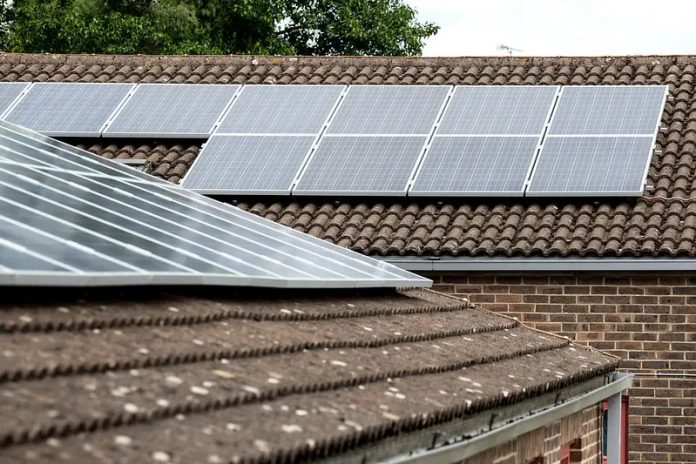Great British Energy, the UK’s new publicly owned energy company, has announced that its first major project will install rooftop solar panels on schools and hospitals to “power classrooms and operations, with potential to sell leftover energy back to the grid.”
Schools and hospitals “have been hit with rocketing energy bills in recent years, costing taxpayers millions of pounds, and eating into school budgets” because of the UK’s dependence on global fossil fuel markets, the government said in a release.
The plan includes a total ?200-million investment from the UK government and Great British Energy that will support panel installations on 200 schools and 200 National Health Service (NHS) sites. By placing solar panels on hospitals, the government will offset energy consumption by the NHS, the country’s single biggest public-sector energy user. NHS energy expenses have more than doubled since 2019 to an estimated £1.4 billion.
Each NHS site could save up to an estimated £45,000 per year with solar panels, while schools could save up to £25,000 each per year.
Jess Ralston, energy analyst at the UK’s Energy & Climate Intelligence Unit, remarked in a commentary published on the non-profit’s website that the funding amounts to an investment in lowering energy bills for the NHS and schools that will help, in turn, to lower costs for taxpayers and the public sector.
“Not only this,” Ralston added, “but it’s an investment into energy security, as solar panels lower the amount of gas we need to import from people like [Russian dictator Vladimir] Putin, representing a path to energy independence for the public sector, which has been hit hard by rocketing bills over the past few years of the gas crisis.”
Great British Energy is a government-owned renewable energy company initiated by proposals from the Labour party dating back to 2021. Steps to formally establish the company began in 2024. The company’s board held its first meeting in mid-March to discuss future plans, including the solar plan for schools and hospitals and a ?10-million investment in local governments.
The Great British Energy Bill, finalizing the company’s establishment, is in the final stages of passage as it awaits consideration of amendments before moving on to receive royal assent. Members of Parliament are currently debating one amendment that would block the company from working with companies that use forced labour, with some saying that removing the amendment could help build relations with China, reports The Guardian.






